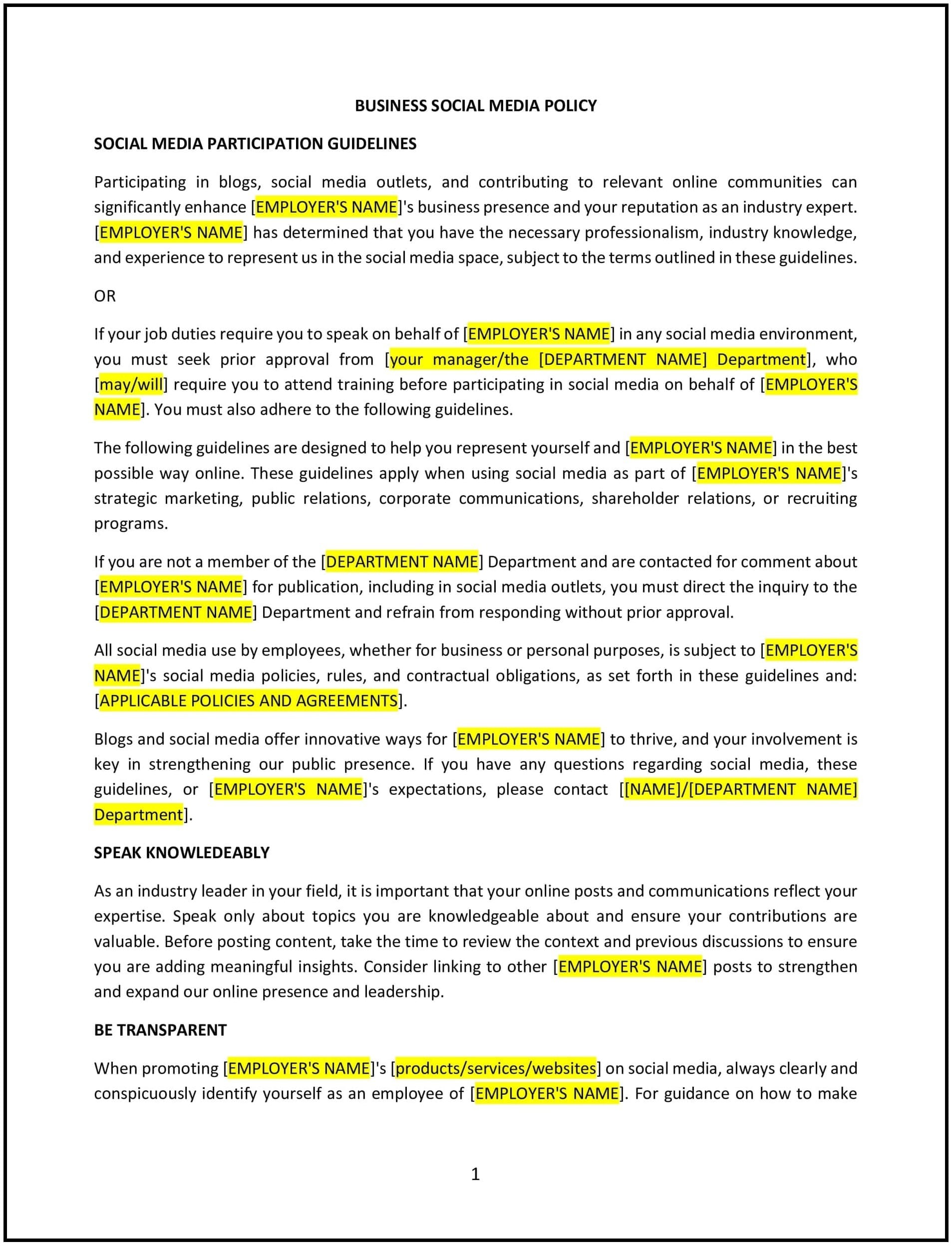Business social media policy (Nevada): Free template
Got contracts to review? While you're here for policies, let Cobrief make contract review effortless—start your free review now.

Customize this template for free
Business social media policy (Nevada)
This business social media policy is designed to help Nevada businesses establish guidelines for the use of social media by employees. Whether used for business-related purposes or personal activities, this policy ensures that employees understand how to represent the company online in a professional and appropriate manner.
By adopting this policy, businesses can protect their reputation, promote compliance with legal requirements, and promote responsible social media use in the workplace.
How to use this business social media policy (Nevada)
- Define acceptable use: Specify what constitutes acceptable use of social media during work hours, including whether personal social media use is allowed on company time or devices.
- Outline company representation: Clarify how employees should identify themselves when discussing the company on social media, ensuring that their posts are accurate and reflect the company’s values.
- Establish confidentiality and privacy expectations: Ensure that employees understand the importance of safeguarding confidential company information and respecting the privacy of colleagues, clients, and customers.
- Provide guidelines for business-related posts: Set clear expectations for employees posting on behalf of the company, including who is authorized to post, what content is acceptable, and the tone of voice that should be used.
- Address negative comments: Define how employees should handle negative or harmful comments about the company or colleagues online, and whether they should report them to management.
- Set consequences for policy violations: Outline the disciplinary actions employees may face if they violate the policy, ranging from warnings to termination, depending on the severity of the issue.
- Encourage professionalism: Remind employees to maintain professionalism in their personal social media accounts and avoid posting anything that could negatively affect the company’s reputation.
Benefits of using this business social media policy (Nevada)
This policy provides several key benefits for Nevada businesses:
- Protects company reputation: Ensures that employees understand the importance of representing the company in a positive and professional manner on social media.
- Promotes responsible social media use: Encourages employees to use social media responsibly while balancing both personal and professional life.
- Enhances legal compliance: Helps businesses comply with relevant legal and regulatory requirements by addressing issues like confidentiality, harassment, and intellectual property protection.
- Sets clear expectations: Provides employees with a clear understanding of what is expected regarding their social media activity, reducing the risk of misunderstandings or inappropriate behavior.
- Fosters a respectful work environment: Helps create an environment where employees are mindful of how their online behavior may impact their colleagues and the workplace culture.
Tips for using this business social media policy (Nevada)
- Communicate the policy effectively: Ensure that employees are aware of the social media policy and understand its provisions, especially when onboarding new staff or introducing policy updates.
- Regularly update the policy: Periodically review the policy to reflect changes in technology, social media platforms, and legal requirements.
- Encourage professional development: Provide training or resources to help employees understand how to use social media effectively and responsibly while promoting the company.
- Monitor social media activity: Consider monitoring social media activity related to the company to identify any potential issues early and address them appropriately.
- Lead by example: Encourage senior leadership and management to model appropriate social media behavior to set a positive example for employees.